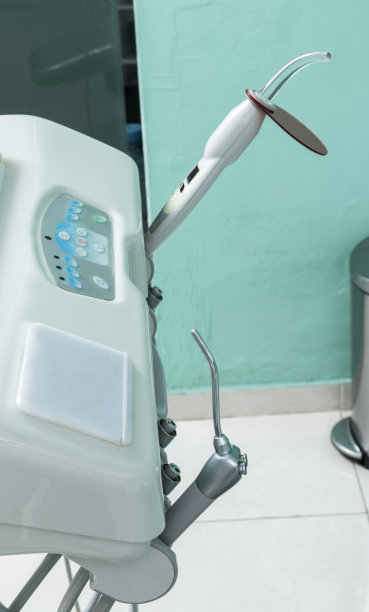Summary: Dental fillings are a common procedure for restoring teeth damaged by decay. However, ensuring a successful outcome goes beyond just the appointment; it requires diligent post-treatment care. This article outlines essential precautions and recovery tips after receiving a dental filling treatment. We will explore four main areas: initial care immediately following treatment, dietary considerations for the healing process, maintaining oral hygiene, and scheduling follow-up appointments. By adhering to these guidelines, patients can enhance their recovery and preserve their dental health effectively.
1. Immediate Post-Treatment Care Steps

After receiving a dental filling, the first few hours are critical. During this period, your mouth is still numb from the local anesthetic, which can last several hours. It’s vital to avoid biting or chewing anything, particularly hot foods or beverages, to prevent accidental injury to your cheeks, gums, or tongue.
After the numbness fades, you may experience some sensitivity in the filled tooth. Its essential to manage any discomfort with over-the-counter pain relief medications, as advised by your dentist. Avoid strenuous activities and rest to allow for a more comfortable healing process.
Additionally, keep your head elevated and apply ice packs to the affected area to help reduce any swelling or discomfort. These care measures ensure that you maintain a suitable healing environment and reduce the chances of complications.
2. Dietary Considerations for Effective Healing
Your diet plays a significant role in your recovery after a dental filling. For the first 24 hours, stick to soft foods that require minimal chewing, such as yogurt, applesauce, and smoothies. Hard or crunchy foods can aggravate tooth sensitivity and compromise the filling.
After the initial 24 hours, gradually reintroduce solid foods but continue to avoid sticky or chewy items that might pull the filling loose. Also, be cautious with hot and cold items, as they could amplify discomfort in sensitive teeth.
Staying hydrated is crucial during this recovery phase. Drinking plenty of water not only helps maintain overall health but also aids saliva production, which is essential for oral healing. Striking a balance with a nutritious diet will support a quicker and more efficient recovery after your dental filling.
3. Maintaining Good Oral Hygiene Practices
Maintaining good oral hygiene is essential after a dental filling to ensure that the site heals properly and remains healthy. You should continue brushing your teeth twice a day, but be gentle around the filled tooth to prevent irritation. Consider using a soft-bristled toothbrush, which is less abrasive and reduces the risk of discomfort.
Flossing should not be neglected; however, be cautious when flossing around the newly filled tooth. Avoid excessive force that could dislodge the filling. If youre using floss for the first time after treatment, consult your dentist for guidance on the best techniques.
Regular rinsing with a mild mouthwash can also help prevent infection and promote healing. Using an antiseptic mouthwash can keep bacteria at bay while providing comfort to your healing gums. A carefully maintained oral hygiene routine will not only aid in the recovery process but also extend the longevity of the dental work done.
4. Importance of Follow-Up Appointments
Follow-up appointments with your dentist are crucial after receiving a filling. Typically, your dentist will schedule a revisit to monitor the healing progress. This visit allows you to address any concerns regarding pain or sensitivity and ensures the filling is intact and functional.
During follow-up visits, your dentist can make necessary adjustments to the filling if its high or uncomfortable when you bite down. Timely adjustments can significantly contribute to your comfort and the long-term success of the filling.
Moreover, regular dental check-ups play a pivotal role in maintaining oral health. These visits will allow for early detection of any potential issues that may arise after treatment, ensuring that any concerns are addressed promptly to avoid further complications.
Summary:
In conclusion, taking essential precautions after receiving a dental filling treatment is vital for ensuring successful recovery and long-term dental health. From immediate post-treatment care to dietary restrictions and the importance of oral hygiene and follow-up appointments, adhering to these guidelines can significantly enhance your healing experience. By being proactive, patients can minimize discomfort and promote a healthier mouth.
This article is compiled by Vickong Dental and the content is for reference only.
Vickong Dental
Vickong Dental is a large medical group established in Hong Kong in 2008 by professors from well-known medical universities in Guangdong and Hong Kong, as well as medical doctors from key national '985' universities (including Master's supervisors and senior professors). The chain of branches brings together expert dentists with PhDs and Master's degrees from Hong Kong and Mainland China, committed to providing high-quality dental treatment.
"Vickong Dental Practices the University Motto of 'Healing and Serving Society,' with a Stable Operation for Sixteen Years. It Has Been honored with Hong Kong Enterprise Leaders's Choice,' and is a Global Trusted Implant Center for the Nobel Implant System. Recommended by Hong Kong Metro Broadcast and Guangdong Television, it Serves Customers from Over Thirty Countries and Regions, Gaining the Trust and Favor of Citizens from the Guangdong-Hong Kong-Macau Greater Bay Area and Surrounding Cities.

Thousands of customers' unanimous praise
The most recognized and highly recommended dental service by customers in the Guangdong-Hong Kong-Macau Greater Bay Area
We Ensure You Receive Detailed Care and Attention Here
Hong Kong standards, Shenzhen prices, Your Trusted English-speaking dentists

Vickong Dental Medical-Grade Instrument Disinfection Process
Vickong Dental Medical-Grade Instrument Disinfection Process

Vickong Dental Chain: A Warm and Comfortable Environment for Treatment






Appointment Hours

Q&A
Why choose Vickong Dental?
Vickong Dental practices the university motto 「Medicine to Benefit Society」, with each branch bringing together highly qualified dentists with doctoral and master’s degrees from Hong Kong and the Mainland, and has maintained seventeen years of steady operation。Recipient of 「2024 Hong Kong Enterprise Leaders Brand」, 「2025 Hong Kong Enterprise Leaders Brand」, a Nobel Biocare Global Trusted Implant Center, and a brand recommended by Metro Radio Hong Kong and Guangdong TV。
To date, we have served customers from more than thirty countries and regions,earning exceptionally high word-of-mouth recognition and trusted recommendations from residents across the Guangdong-Hong Kong-Macao Greater Bay Area and surrounding cities
We have eight major branches in Zhuhai、Shenzhen,and a consultation and service assurance center in Hong Kong,so you can book a free consultation at any time for any questions,which is very reassuring.
If I do not accept the quotation after the CT scan, will I be charged??
No! As long as the actual treatment has not started, you will not be charged any fees.
Will there be any additional charges during the treatment process?
No, there won’t be any additional charges. Before treatment begins, we will clearly explain the treatment plan and its corresponding fees. Only after the patient agrees and signs the consent form will we proceed with the dental service.
Can I pay in Hong Kong dollars?
Yes. Vickong Dental accepts payment in Hong Kong dollars. The amount will be converted based on the exchange rate of the day, and the applicable rate will be clearly communicated to you in advance.
Can I reschedule my appointment at any time?
Yes. Please contact us via **WeChat** or **WhatsApp** as early as possible, providing your original appointment time and details, along with your preferred new date and time slot for rescheduling.













